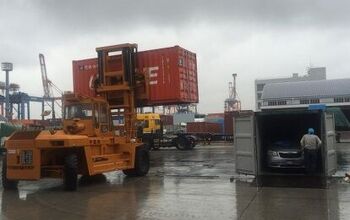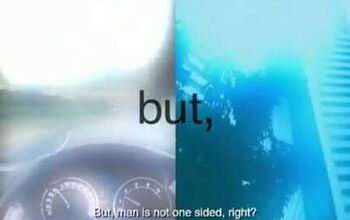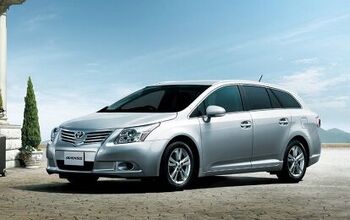Japan's Misguided Car Imports Skyrocket

Here is another myth that won’t die, as hard as we might be trying to debunk it: “Japan is a closed market for cars. They do everything to keep foreign cars out. Those Nips are unfair, and it’s time to do something about it.”
It’s baloney. Paul Niedermeyer debunked the propaganda, and said: “Want to import cars to Japan? It’s one of the easiest countries to do so.“ I did another story and showed, for those with reading comprehension problems, a picture of Japanese im- and exports. But the story won’t die. Ok, let’s try again to put it to rest.
Sales of imported cars in Japan jumped 34.7 percent on the year to 119,053 vehicles in the first half of fiscal 2010. That according to preliminary data released Wednesday by the Japan Automobile Importers Association, and brought to us by The Nikkei [sub]. In September alone, sales of imported cars in Japan jumped 45.1 percent to 30,004 vehicles.
Then why the myth that the Japanese block imports? Well, they import the wrong cars, as far as the U.S. is concerned. Volkswagen has for long been the biggest import brand in Japan, and their sales jumped 37.7 percent to 25,399. Next in line is Nissan which imported and sold 16,869 vehicles, a huge jump from just 167 cars a year earlier. Germany’s BMW, Mercedes-Benz and Audi were the next highest sellers. American cars didn’t even rate a mention. With Japanese car makers exporting whole factories abroad and importing their own cars from low cost, soft currency markets, the import number is expected to rise considerably.
There are no import restrictions for cars in Japan. The tariff is zero. It’s just that nobody seems to want an American car. It’s uncool. Or “dasai” as they say in Japan. My father-in-law in Tokyo gets a new BMW every year, and he sure would have room for something much bigger in his six car garage. But a Cadillac? I think he would die of embarrassment instead. Even members of the Japanese Mafia, the Yakuza, shun a Cadillac. Their conveyance of choice is a black S-Class Mercedes with tinted windows. Show up with a Camaro, and you’ll lose a finger.
I guess it’s easier to point fingers and blame non-existent import restrictions than to admit that you are dasai.

Bertel Schmitt comes back to journalism after taking a 35 year break in advertising and marketing. He ran and owned advertising agencies in Duesseldorf, Germany, and New York City. Volkswagen A.G. was Bertel's most important corporate account. Schmitt's advertising and marketing career touched many corners of the industry with a special focus on automotive products and services. Since 2004, he lives in Japan and China with his wife <a href="http://www.tomokoandbertel.com"> Tomoko </a>. Bertel Schmitt is a founding board member of the <a href="http://www.offshoresuperseries.com"> Offshore Super Series </a>, an American offshore powerboat racing organization. He is co-owner of the racing team Typhoon.
More by Bertel Schmitt
Latest Car Reviews
Read moreLatest Product Reviews
Read moreRecent Comments
- 3-On-The-Tree Lou_BCone of many cars I sold when I got commissioned into the army. 1964 Dodge D100 with slant six and 3 on the tree, 1973 Plymouth Duster with slant six, 1974 dodge dart custom with a 318. 1990 Bronco 5.0 which was our snowboard rig for Wa state and Whistler/Blackcomb BC. Now :my trail rigs are a 1985 Toyota FJ60 Land cruiser and 86 Suzuki Samurai.
- RHD They are going to crash and burn like Country Garden and Evergrande (the Chinese property behemoths) if they don't fix their problems post-haste.
- Golden2husky The biggest hurdle for us would be the lack of a good charging network for road tripping as we are at the point in our lives that we will be traveling quite a bit. I'd rather pay more for longer range so the cheaper models would probably not make the cut. Improve the charging infrastructure and I'm certainly going to give one a try. This is more important that a lowish entry price IMHO.
- Add Lightness I have nothing against paying more to get quality (think Toyota vs Chryco) but hate all the silly, non-mandated 'stuff' that automakers load onto cars based on what non-gearhead focus groups tell them they need to have in a car. I blame focus groups for automatic everything and double drivetrains (AWD) that really never gets used 98% of the time. The other 2% of the time, one goes looking for a place to need it to rationanalize the purchase.
- Ger65691276 I would never buy an electric car never in my lifetime I will gas is my way of going electric is not green email


































Comments
Join the conversation
The OP is covering up the truth. The truth is that imports are subject to ridiculous spot inspections that often require costly repairs. Domestic cars in Japan are supposed to get the same inspections but flaws are overlooked and every car gets waved through. Japan just simply does not play fair to protect its home market.
I have owned a 1981 Mazda 626, 1987 Mazda 626, 1992 Mazda MX-6 and 2007 Mazda 6, all good cars. I see shy Japanese cars sell.